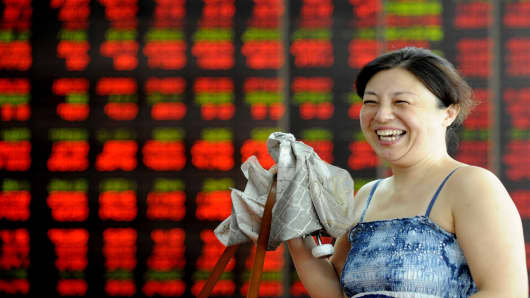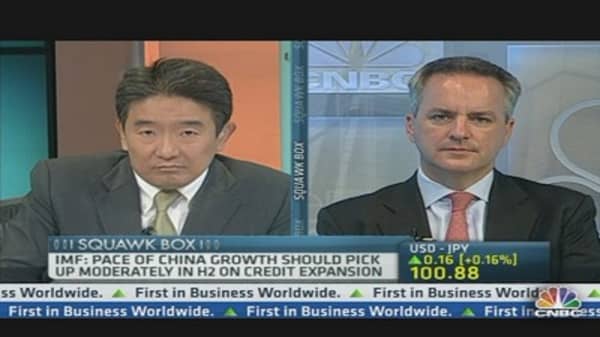Asia's infamous stock market laggard seems to have regained a little swagger in May.
Even as most major global markets managed to shake off the "sell-in-May" syndrome to finish higher for the month, it's China that's taken the lead position in the gains.
The benchmark Shanghai Composite was up almost 6 percent for the month, far outperforming Asia's major markets, including Japan's volatile Nikkei which was down 0.6 percent in May.
In comparison globally, the benchmarks - Dow Jones Industrial Average and the S&P 500 - are both up over 3 percent this month, while FTSE EuroFirst 300, a broad measure of European stocks, is higher by 2 percent.
But China's May performance has baffled market watchers, who think going ahead there might be little positive trigger for Chinese stocks.
Paul Krake, founder of View from the Peak: Macro Strategies, a trading strategy firm, cannot find a reason for this rally.
(Read More: China Stocks: Why Goldman Likes This Market Laggard)
"There's no fundamental news that has pushed this, literally in the first four months of the year, it was a structural underperformer," Krake said. "So, is it a short squeeze? [Referring to sellers being forced to close short positions as the market bounces higher] There's not been any policy response [either]."




